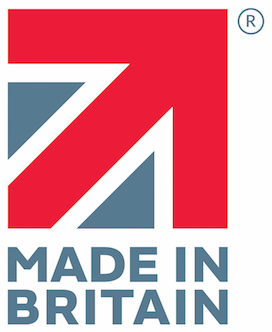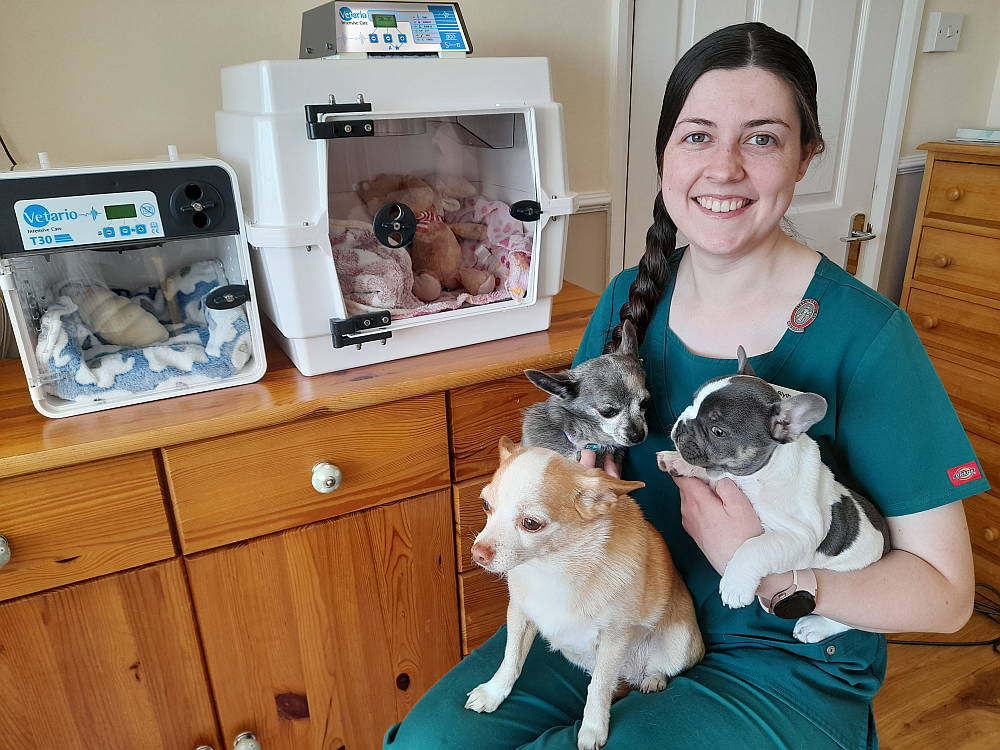The importance of Vetario ICU’s in neonatal care
‘I have been voluntarily hand-rearing animals for over 10 years alongside my veterinary nursing role. I noticed much of the veterinary profession have little understanding in the care of neonatal patients. Many were being put to sleep or owners were offered limited advice and I became frustrated and upset by this. As a result, I decided to dedicate my time researching ill health and congenital defects amongst neonates. Since then, I offer and am asked to take on puppies and kittens that are needing help. These cases are completely funded by myself and after several years I was able to save up for my first incubator. Most of the neonates I rear have conditions or disabilities such as, cleft lips, palates, chest and limb deformities. I also hand-rear for several animal charities which enables me to help more orphans.
‘In order to give critical neonates the best chances of survival, an incubator such as the Vetario T40M is vital. Firstly, it ensures the environment is maintained at a constant ambient temperature to maintain thermoregulation. It possesses dust filters and ventilation features to fend off airborne bacteria which orphaned animals are particularly susceptible to. This model has oxygen and nebulizer functions which means when I receive a patient that is premature or has aspiration pneumonia, I can provide oxygen supplementation and nebulizer treatments without having to remove them from the warmth of the incubator. Previously, I would have to provide these treatments manually which was far less practical.
‘The T40M and T50M design is perfectly suited to the busy veterinary practice. They are easy to clean, simple to use and are extremely versatile making them an asset when treating neonatal patients. Aesthetically, they are in keeping with other equipment commonly found in veterinary practices making them well suited to professionals.
‘Caesarean sections are a great example of where these incubators provide gold standard care. All hands are on deck, and there is usually a queue to provide much needed oxygen for the newborns, a delay in oxygen and warmth increases mortality rates. The T40M/T50M units can provide oxygen and warmth to all newborns whilst staff are undertaking other important duties. The clear, wide view door also makes close monitoring and observations achievable.
‘As well as the Vetario T40M, I use the Vetario T30 incubator which benefits from a vehicle power adapter. This model is lightweight and compact, meaning it can be easily transported in an emergency situation. Neonates are often cold and collapsed upon presentation; the first priority when triaging these patients is to make sure they are warm prior to feeding. This makes the T30 an ideal travel incubator giving piece of mind whilst driving, knowing the patient is being stabilized during transit.
‘I would not be without the Vetario units and they have certainly helped in saving many lives. The practicality makes life much easier and eliminates the concerns I would have had previously regarding thermoregulation. I hope in some way I can help improve the standard of care towards neonates in the veterinary profession which will in turn, enable veterinary professionals to feel more confident and compassionate in their approach to these cases.
‘I am also very grateful to the customer service Vetario provide. Everyone I have communicated with have always gone above and beyond. It is clear they care about how the equipment they provide can make a difference to caregivers and their patients.’
Jessie Blyth RVN, APVN (Wildlife)


